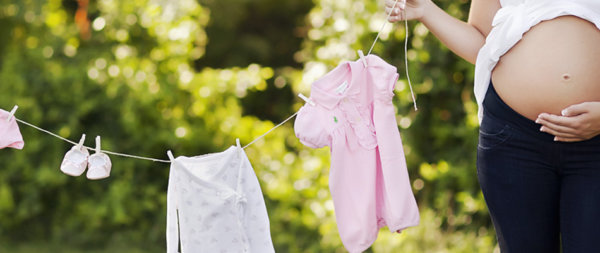Content
Pregnancy is a time of both joy and uncertainty. In this article, you will learn about the symptoms and signs of pregnancy, what prenatal care is and what it consists of. How to eat right, as well as more about all three trimesters of pregnancy.
Pregnancy is divided into three almost equal trimesters, each with its own challenges and changes for both the pregnant woman and the baby. The first trimester starts from the moment of fertilization up to 13 weeks of pregnancy, the second begins at 14 and ends at 27 weeks, and the last third trimester begins at 28 weeks.
The first trimester starts from the moment of fertilization up to 13 weeks of pregnancy, the second begins at 14 and ends at 27 weeks, and the last third trimester begins at 28 weeks. Prenatal care is very important! This means that for 9 months a pregnant woman receives medical care from a doctor. Prenatal care: monitoring the development of the unborn child and the condition of the pregnant woman. The doctor conducts screenings, prescribes medications, if necessary. At the reception, the weight of the mother and child is checked, the heartbeat is heard.

First trimester (1-13 weeks)
Beginning of the embryonic period. The organs of the child develop, some of them even begin to function. This is the most important thing for the future baby. Because at this time he (she) becomes more vulnerable to what could interfere with development. At this stage, the baby is just still an embryo, consisting of two main layers: the hypoblast and the epiblast. From these layers, all organs and parts of the body begin to develop. One half is the baby and the other half forms the placenta, which provides oxygen and nutrients to the growing baby. At six weeks, symptoms such as morning sickness, chest pain, fatigue, heartburn, and insomnia appear. There is also concern about miscarriage, as it is the most common during this early trimester. Doctors help to determine the threat of miscarriage.
Second trimester (14-27 weeks)
If at first there was severe nausea, dizziness, then in the 2nd trimester the pregnant woman is more energetic. In these weeks, it is felt that the baby is kicking and turning over inside the abdomen. The possibility of miscarriage is reduced. The expectant mother and child are gaining weight. At this stage, there may be: confused breathing, stretch marks, pain in the hips and back, skin changes, itching on the palms and abdomen. The child develops fingers, toes, eyelashes and eyebrows. In the second trimester, between about 18 and 22 weeks, an ultrasound examination should be performed. During the ultrasound, the specialist can tell the future parents the gender of the child.
Prenatal care in the third trimester
At this time, you need to limit the use of certain dishes:
1. The use of all kinds of broths from meat, fish and mushrooms. They are difficult to digest in the body. Alternatively, you can use tender meat or fish with a low percentage of fat;
2. To avoid swelling, you should consume no more than 0.8 liters of fluid per day;
3. A pregnant woman also does not need to eat high-fat foods;
4. No more than five grams of salt should be used in food per day.
In order not to gain excess weight, which will subsequently interfere with the process of childbirth, you need to limit the use of potatoes, sweet dishes, flour products. The main thing to keep in mind is that excess carbohydrates in the body can harm the fetus if its mass increases. Overweight in a pregnant woman is dangerous, because adipose tissue disrupts the functioning of the kidneys.
Nutrition during pregnancy
Pregnancy is a long 9 month journey full of ups and downs. All changes in the body, not to mention the growing child inside a woman, can be taken by surprise. Food will give mental and physical energy, so you have to be very picky about food.
1. Proteins. It is one of the constituents of blood and muscles. Protein sources include: beef, pork, turkey, liver, eggs, milk, salmon, yogurt, pistachios.
2. Iron. It helps send nutrients to all parts of a pregnant woman's body, including the growing baby. Iron is essential for the growth of a child. Prevents anemia in the future. Iron is found in meat, namely beef, pork, chicken liver, and is also found in shellfish, anchovies.
3. Calcium forms the bones and teeth of the child. Milk, cheese, sesame, yogurt are rich in calcium.
4. Vitamin A. During pregnancy, immunity decreases and vitamin A should also be taken. However, taking too much vitamin A increases the risk of malformations in the fetus. Therefore, you need to be careful when eating, for example, liver.
Thus, having decided to have a child, every woman must come to terms with the fact that during pregnancy her psychology and physiology will change. If a woman refuses to take this into account, then her body does not have time to adapt, mental and physical overstrain increases, immunity decreases. What to do? The only way to solve this problem is to change your attitude towards pregnancy and become your own therapist.
PS If you liked the article, please press the buttons of social networks.


Leave a comment